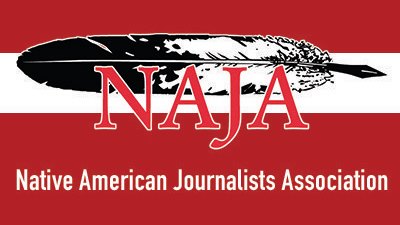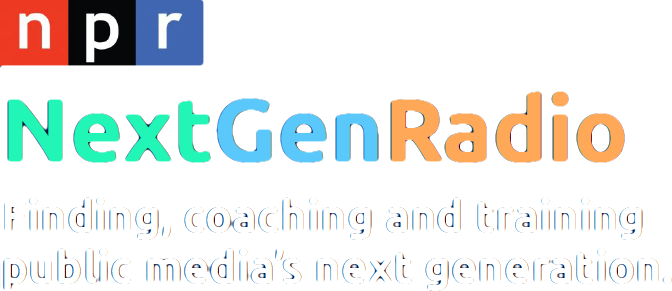
The impact of climate change
We are finding, coaching and training public media’s next generation. Five talented reporters are participating in a week-long state-of-the-art training program.
In this project we are highlighting the experiences of people whose lives are being affected by climate change.
Hickory Edwards, a member of the Onondaga Nation, Turtle Clan, is the founder of the Onondaga Canoe and Kayak Club. For the last 15 years, he’s been using canoeing to connect with his ancestral history and to encourage others to get involved with water preservation efforts.
Illustration by Ard Su
Protecting the waterways: Onondaga paddler unites ancestral paths with environmental activism
LISTEN TO THE STORY
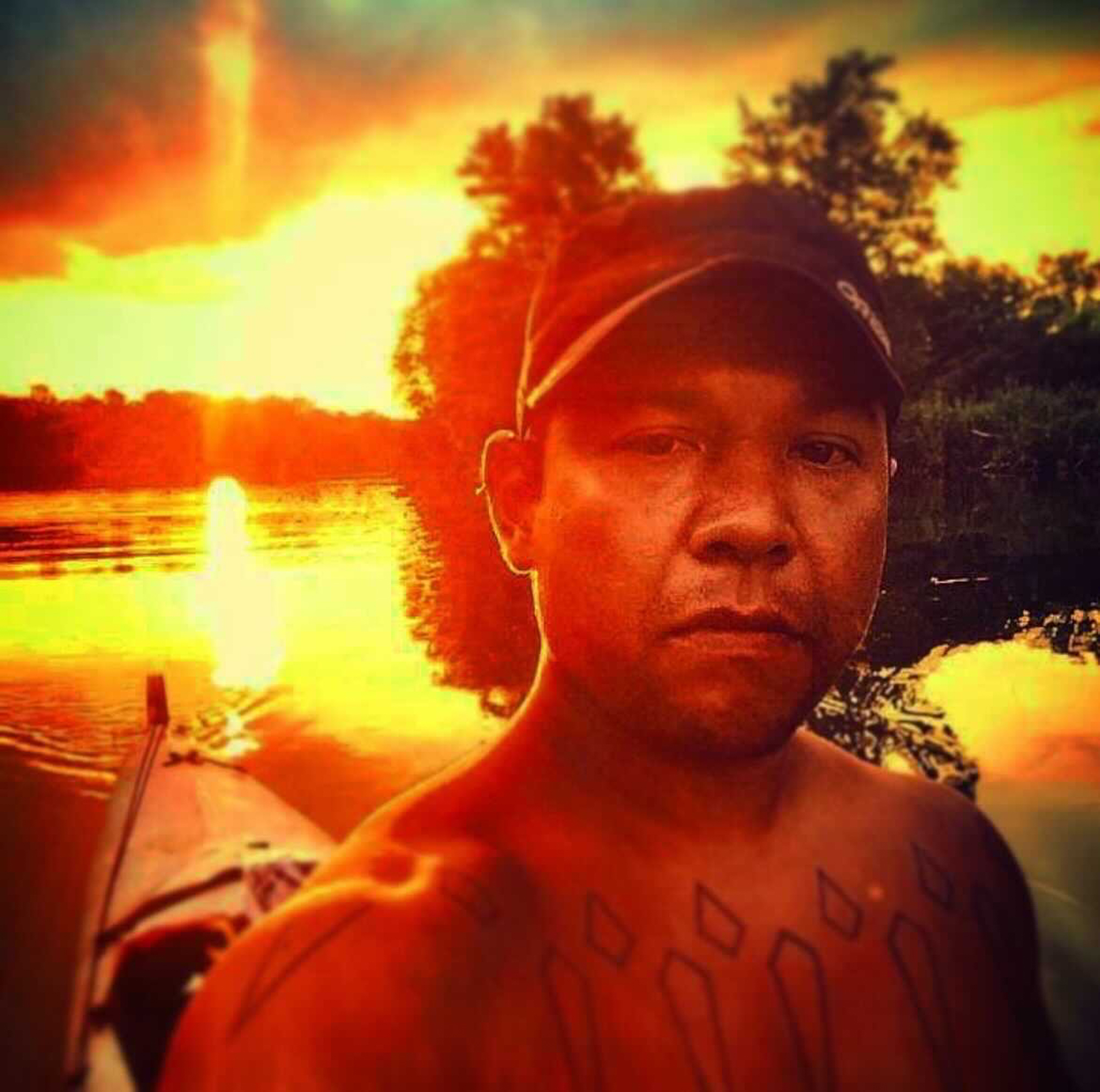
Paddling is hard work, but becomes as easy as breathing for Edwards, to the point where he loses track of time. (Photo courtesy of Hickory Edwards)
Warm summer days are ideal when launching his 18-foot canoe made of Kevlar into the cool waters of Onondaga Lake. Once on water, Hickory Edwards begins paddling, setting off onto his next journey on forgotten water paths.
Edwards, the founder of the Onondaga Canoe and Kayak Club and member of the Onondaga Nation, Turtle Clan, is leading the effort to relearn the water paths that the Haudenosaunee used for travel until centuries after European colonization of the land. Using paddling as a form of environmental activism, he also works to encourage other Haudenosaunee to get back on the water.
“It’s really important that we know these waterways,” said Edwards. “It’s the same water that my ancestors drank. It’s going to make us up and our grandkids and our future generations. All that water is just being recycled and connected, and that’s why we bring our people.”
Onondaga Lake plays an important cultural role for the Onondaga Nation. Originally, the lake was a part of the tribe’s territory, before being claimed by the state of New York in the 18th and 19th centuries. According to the Onondaga Nation, The Peacemaker is said to have brought the previously fighting Seneca, Cayuga, Onondaga and Mohawk Nations together to form the Haudenosaunee Confederacy, bringing peace among the tribes by planting a tree with four white roots spreading out in all four directions from the lake.
A combination of industrial pollution, wastewater pollution and polluted runoff impacts Onondaga Lake’s quality of water, which until the last decade was known as America’s “most polluted lake”. From the 1880s, manufacturing companies including Solvay Process Company and Allied-Signal (now Honeywell) were responsible for dumping chemicals ranging from soda ash to mercury into the lake, according to the Onondaga Nation. Toxicity levels and algal growth still affect the water, as reported by the New York State Department of Environmental Conservation.
Nowadays, one of the struggles that Edwards’ faces as a canoer is the declining state of water. From lakes, rivers, streams and into the ocean, pollution affects the quality of water everywhere.
“It’s different to see the different lands and different pollution because there’s pollution everywhere you go,” said Edwards. “You can’t get away from it now. Every single body of water has some sort of form of pollution.”
While Onondaga Lake remains culturally significant, the level of pollution adds barriers that prevent the Onondaga from making contact with the lake.
“I always grew up knowing not to not to go in the water, not to touch the water,” Edwards said.
Despite the pollution, Edwards continues to paddle to advocate for water preservation – for both the environment and in respect to his culture.
“I see that as putting that knowledge and instilling that we need to protect this water through canoeing and being on the land using the land like we are at least here,” said Edwards. “Like the same way our creator intended for us to be here on this land.”
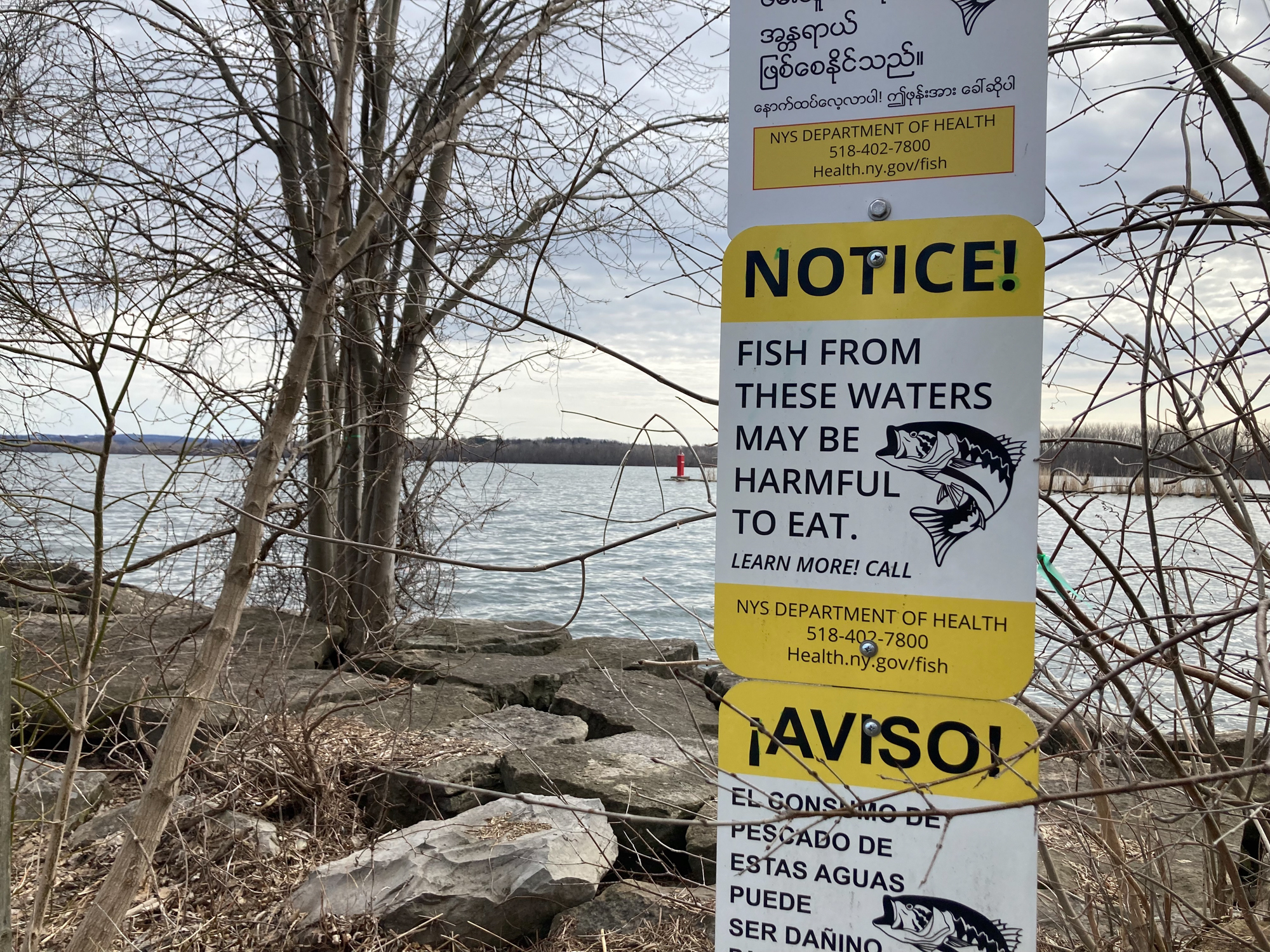
Onondaga Lake contains high levels of mercury, making it unsafe to eat the fish within it. (Photo by Adrianna Adame)
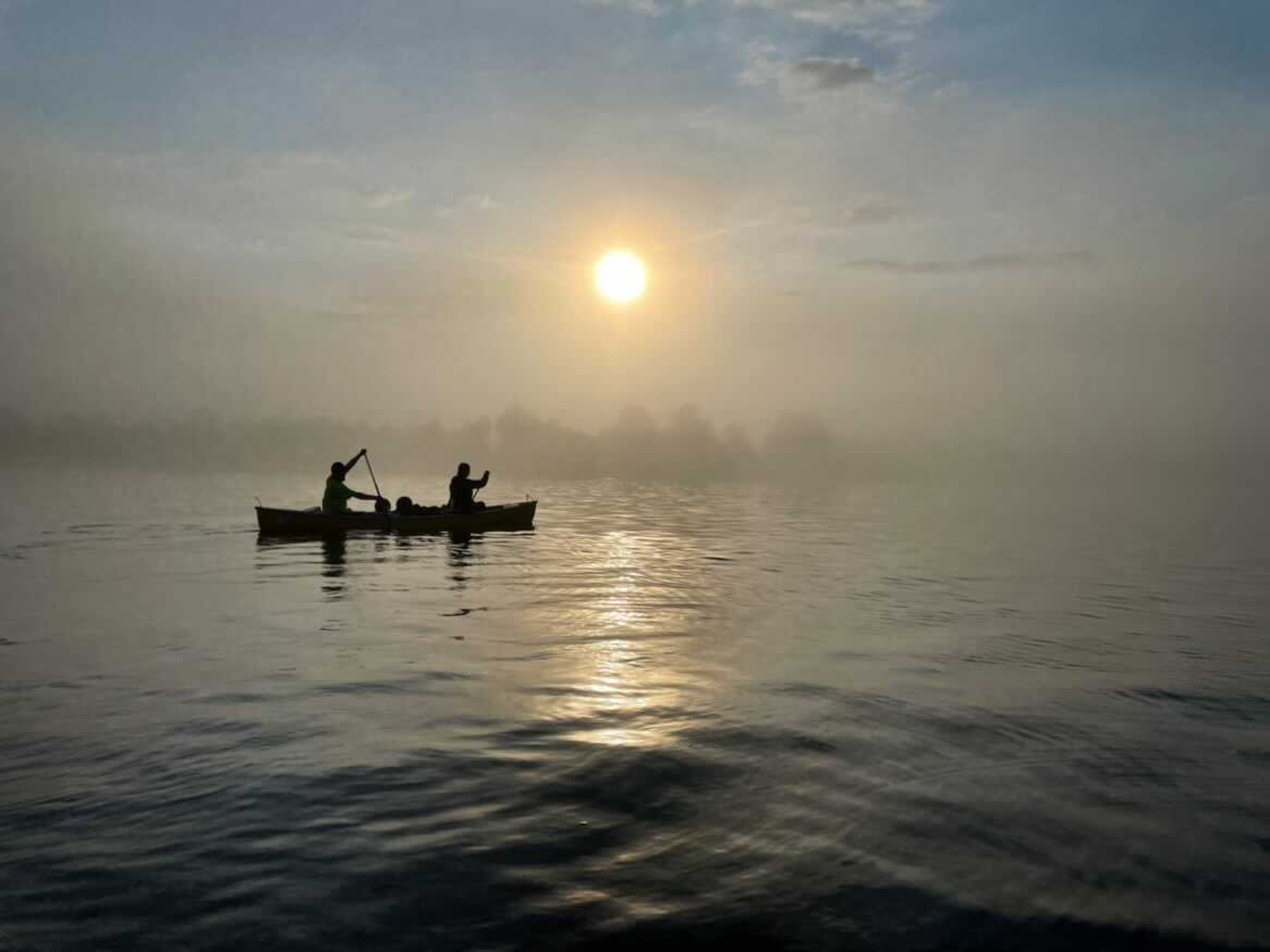
Canoeing is not only a passion, but a way for Hickory Edwards to reconnect with his roots. (Photo credit: Neil Benedict, courtesy of Hickory Edwards)
Edwards also paddles out of passion.
After being introduced to paddling at a cousin’s birthday, he’s continued to be drawn to water ever since. When on the water, Edwards said that while it’s hard work, he loses track of time to the point where he is automatically paddling.
“To be on water, it feels like home. It’s really special to me because it’s just that feeling of where I’m supposed to be,” Edwards said.
Canoeing isn’t Edwards’ only act of environmental activism. Previously, he protested at Standing Rock and contributed to getting fracking banned in New York state. However, canoeing is the form of environmental activism that he’s most passionate about.
Edwards wants to encourage others to be able to participate in canoeing, which is why he continues to host trips during the spring and summer. His next trip will be from Cooperstown to Binghamton from May 14-16.
By bringing people together, Edwards hopes to create a bigger impact.
“Alone we can change ourselves, but do that together and we can change the world,” Edwards said.
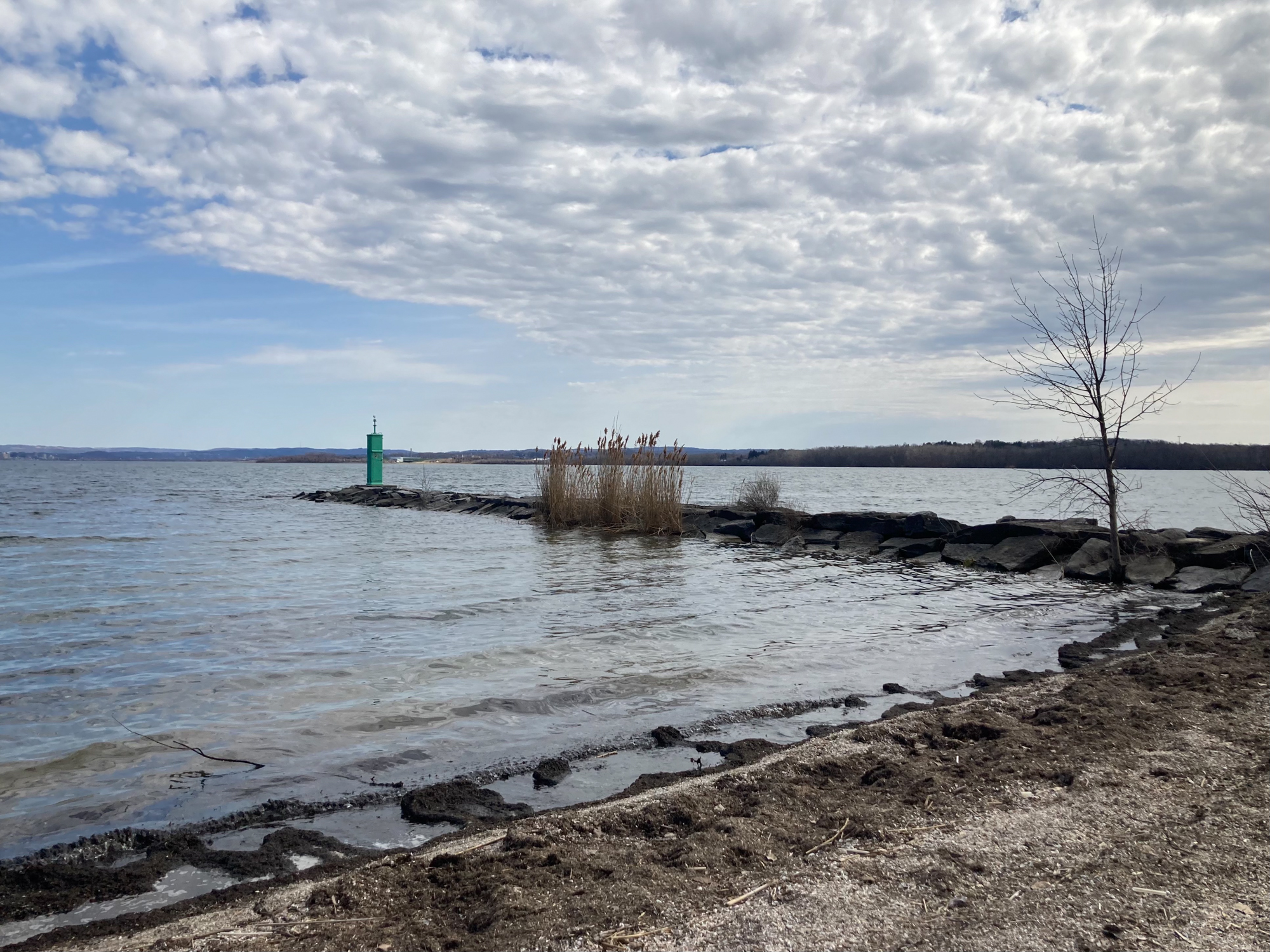
Onondaga Lake was once known as America’s “most polluted lake.” Hickory Edwards avoids touching the water when launching his canoe. (Photo by Adrianna Adame)

ACKNOWLEDGEMENTS:
The Next Generation Radio Project is a week-long digital journalism training project designed to give competitively selected participants, who are interested in radio and journalism, the skills and opportunity to report and produce their own multimedia story. Those chosen for the project are paired with a professional journalist who serves as their mentor.
This edition of the #NPRNextGenRadio project was produced in collaboration with:
- Managing Editors – Michelle Faust Raghavan - Independent Editor, Portland, Oregon; Phyllis Fletcher - Independent Editor, Seattle
- Digital Editors – Alexis L. Richardson, Chief Innovation Officer/Digital Content Strategist, Philadelphia; Lita Beck (Navajo) - Senior Politics Editor, The Philadelphia Inquirer; Heather C. Gomez (Jicarilla Apache) - Freelance Digital Editor, Dulce, New Mexico
- Audio Tech – Selena Seay-Reynolds - Freelance Audio Engineer, Los Angeles; Abby Fritz, Freelance Audio Tech/Producer, Syracuse, New York
- Editorial Illustrators – Lauren Ibañez, Freelance Editorial Illustrator, Houston; Eejoon Choi - Freelance Editorial Illustrator, Los Angeles; Ard Su - Freelance Editorial Illustrator, New York
- Visuals – Todd Michalek, Freelance Visual Journalist, Syracuse, New York
- Web Developer – Robert Boos, Freelance Creative Technologist, Minneapolis
Our journalist/mentors for this project were:
- Pauly Denetclaw - Politics Reporter, Indian Country Today, Albuquerque, New Mexico
- Savannah Maher - Reporter, Marketplace, Albuquerque, New Mexico
- Taylar Stegner (Shoshone and Arapaho) - Tribal & Rural Reporter, Wyoming Public Radio
- Tarryn Mento - Reporting Fellow, WAER, Syracuse, New York
- Carrie Jung - Education Reporter, WBUR, Boston
NPR’s Next Generation Radio program is directed by its founder, Doug Mitchell.
